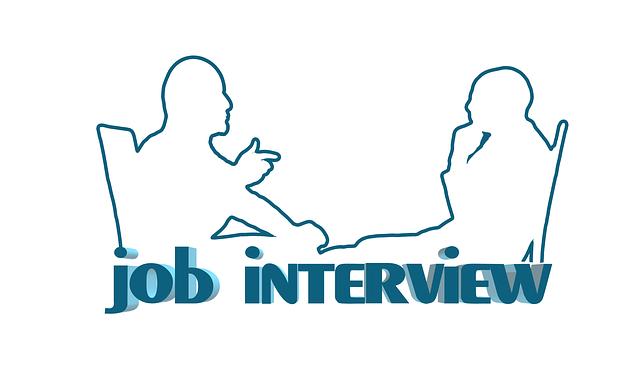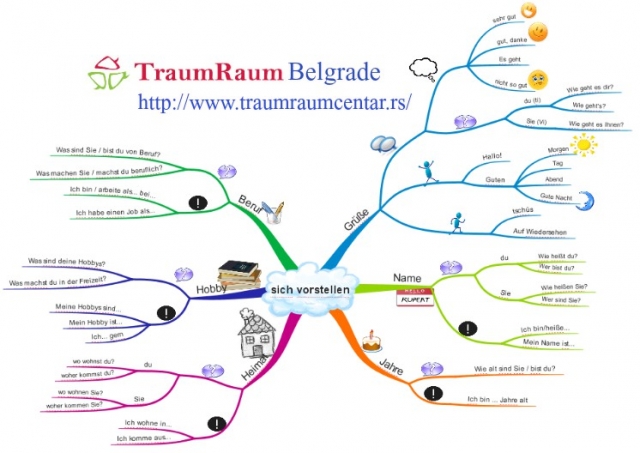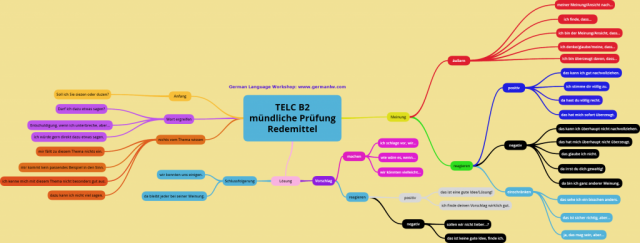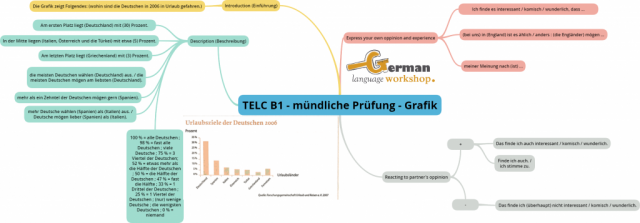Author: Jadranka Bokan
So you have that much sought-after language certificate (for example TELC B2 or C1) in your pocket and you’d like to get a job in Germany. You apply for a job and get invited.
Yaaay!! Excitement is large and tension grows.
How should you prepare yourself for a job interview in German?
Maybe you’ve already been on some job interviews before, however, they were never in German.
The answer is: you should prepare yourself as much as you can – in terms of the content and the foreign language.

This means that you should read a lot about the employer and of course think about all the details about you that could be interesting for the potential employer. That way you’ll be well prepared for all the questions that the employer could ask you AND you will be able to present your own qualities in the best way – in German, of course!
First of all, inform yourself about the company and try to remember the names of: the head of department, his/her deputy and all the people who have invited you for a job interview. If there are some photos on their web page, make sure to remember their faces.
Before the conversation officially starts, you could say something like:
Danke, dass Sie sich heute für mich Zeit genommen haben!
Let’s get going!
Here are potential questions that the employer could ask you during a job interview in German. They are sorted by topics that you should prepare in advance:
Self presentation
Your questions
Plans for the future
Good knowledge of the new firm
Professional experience
General questions
Self-presentation
At the very beginning the employer could say something like:
Stellen Sie sich nochmals kurz vor! / Können Sie mir zunächst etwas über Sie erzählen? / Gibt es etwas, was Sie hervorheben (betonen) wollen?
- This means that you should prepare a short presentation and sum up everything that’s in your curriculum vitae, but say only those things that your potential boss should hear and know about you: present your background and career, your studies and additional qualifications. Also, make sure to say why you have chosen this company and explain how you have decided to study medicine/economics etc.
- It should last for 2-3 minutes

Your questions
Of course, at some point the potential employer could say:
Haben Sie Fragen für uns?
That is the moment when you should show that you have prepared yourself good and ask for example the following questions:
- Wie ist die Firma / die Abteilung strukturiert?
- Gibt es eine Bezugsperson oder einen Mentor, der mich einweist?
- Wie ist die Rotation geplant? (if you are a doctor)
- Ab wann warden in der Regel Dienste übernommen?
- Wie sieht das Schichtsystem aus?
- Wird man für Fortbildungen freigestellt?
- Gibt es die Möglichkeit, sich in Forschung oder Lehre zu engagieren?
- Gibt es freie Tage?
- sieht der Dienstplan Fortbildungstage vor?
- Gibt es einen Etat für Fortbildungen?
- Gibt es ein Ausbildungs-Curriculum?
Plans for the future
The potential employer could also ask:
Wo sehen Sie sich in 5 Jahren? / Welche Ambitionen haben Sie?
Streben Sie eine langfristige Niederlassung an?
Wie sieht es mit der Familienplanung?
Sind Sie schwanger?
A good boss should never ask questions about your religion, sexual orientation or family planning and you have right not to answer to these questions or even to lie.
Good knowledge of the new firm
When the potential employer asks the following questions make sure that you have the right answer:
Was wissen Sie bereits über unser Unternehmen?
Warum bewerben Sie sich genau bei uns? / Was ist der Grund, dich für dieses Haus zu entscheiden? / Warum möchten Sie für unser Unternehmen tätig sein?
Wo haben Sie sich noch beworben? / Haben Sie sich bei anderen Unternehmen beworben?
Wie würden Sie Ihr Interesse an diesem Job auf der Skala von 1 bis 10 einordnen?
It is also recommended that you inform yourself about the publications of your potential boss, that you are interested in research if you are applying at the university clinic or just say that you are a beginner who is interested in new methods.
Here is an interesting video that you should watch:

Professional experience
Welche Erfahrungen bringen Sie für die Firma / Abteilung mit? / Wie sieht Ihre bisherige Erfahrung aus?
Wo liegen Ihre Schwerpunkte / Spezialitäten? / Was sind Ihre Forschungsschwerpunkte?
Warum sind Sie genau die richtige Person für den Job?
Wann haben Sie Examen gemacht?
Wie ist das Thema Ihrer Disertation? Ist sie schon fertig?
General questions:
Wie motivieren Sie sich? Was treibt Sie an?
Was ist Ihre größte Schwäche?
Was ist Ihre größte Stärke?
Was erwarten Sie von mir als Chef?
At the end of the conversation the employer usually says something like:
Wir melden uns bei Ihnen!
If you need professional assistance for a job interview in German, feel free to contact me!


















